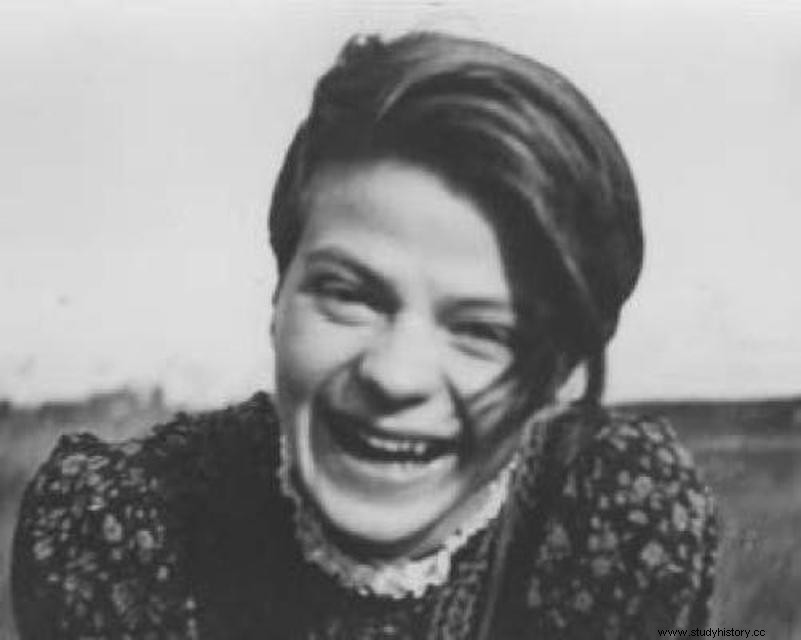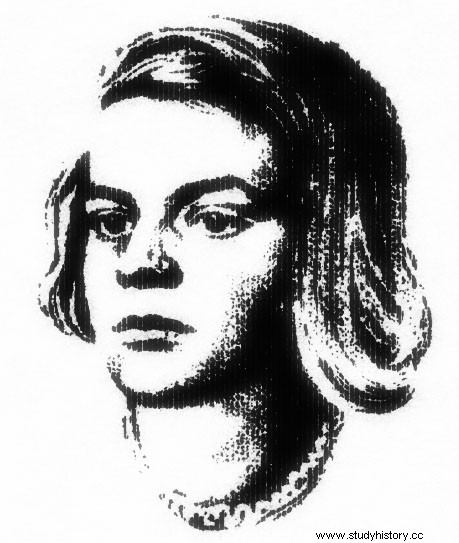Sophie Magdalena Scholl ( 1921 – 1943) was a German resistance fighter from the Second World War and one of the pillars of the White Rose network (Die Weiße Rose ).
Enrolled in the League of German Girls
 The fourth of six children, Sophie Scholl was born on May 9, 1921 in Forchtenberg, a German town where her father was mayor . Gifted at school and very religious, she was raised in the Lutheran religion and developed a certain talent for drawing and painting.
The fourth of six children, Sophie Scholl was born on May 9, 1921 in Forchtenberg, a German town where her father was mayor . Gifted at school and very religious, she was raised in the Lutheran religion and developed a certain talent for drawing and painting.
At the age of 12, like most of the students in her female school, Sophie joined the League of German Girls, the female branch of the Hitler Youth, and quickly became critical of the values and opinions conveyed there. Interested in philosophy and theology, attached to human dignity, she opposes Nazi ideology.
Coming into resistance
Graduated in 1940, Sophie Scholl became a kindergarten teacher. Attached to children, she also hopes that this profession will allow her to escape the labor service, but in vain. In the spring of 1941, she worked for six months as a childcare worker and the military aspect of the labor service made her reflect on the political situation and passive resistance. In 1942, she enrolled as a student of biology and philosophy at the University of Munich, where she met the friends of her brother Hans, who was studying medicine there.
Their band of friends bonded around political opinions but also shared tastes for art, literature, philosophy and theology. Sophie meets many artists and philosophers, with whom she discusses in particular how individuals should act under a dictatorship. At that time, his father was imprisoned for criticizing Hitler and his brother served as a nurse in hospitals on the Eastern Front. Horrified by the situation and by Nazi barbarism, she feels she must act.
The White Rose
 From June 1942, Sophie Scholl joined her brother Hans and Carl Muth in their resistance activity and helped them to distribute tracts hostile to Nazism and the war, in particular by distributing them in the street. She travels to Germany to spread the ideas of the White Rose and to convince the Germans to resist Nazism. Denounced to the Gestapo by the university janitor, she, her brother Hans and Christoph Probst, one of their comrades, were arrested on February 18, 1943.
From June 1942, Sophie Scholl joined her brother Hans and Carl Muth in their resistance activity and helped them to distribute tracts hostile to Nazism and the war, in particular by distributing them in the street. She travels to Germany to spread the ideas of the White Rose and to convince the Germans to resist Nazism. Denounced to the Gestapo by the university janitor, she, her brother Hans and Christoph Probst, one of their comrades, were arrested on February 18, 1943.
Sophie resists the Gestapo interrogations for three days and then ends up confessing to belonging to the White Rose. On February 22, 1943, Christoph, Hans and she were sentenced to death for treason after a hasty trial. They are executed the same day. Showing courage to the end, according to the guards, Sophie affirms before dying that her death does not matter if it allows the uprising of thousands.
